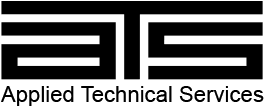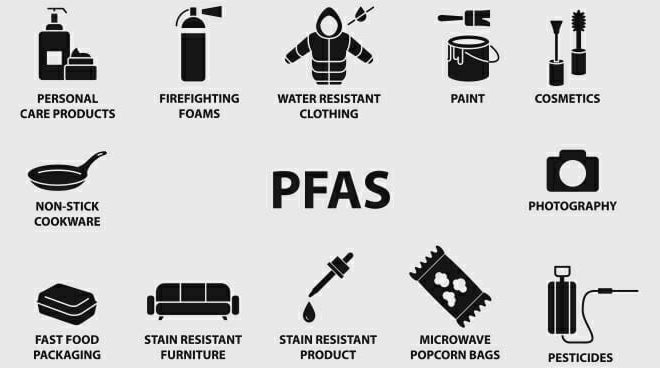PFAS Regulations
Per- and polyfluoroalkyl substances (PFAS) are organic chemical compounds with fluorine atoms attached to most or all available sites on an alkyl chain. PFAS chemicals are used in the manufacturing of textile materials mostly as a water or stain repellant. PFAS chemicals are widely used in products and there are thousands of PFAS chemical types including short-chain and long-chain. According to research PFAS chemicals persist in the environment (meaning they do not break down naturally in the environment) for a longer period than other man-made chemicals, they’re bio-accumulative (build up over time in the body), and they are difficult to remove from the environment. There is a growing health concern regarding human exposure to PFAS chemicals. PFAS chemicals are an endocrine disruptor and carcinogen. In an attempt to regulate the use of PFAS chemicals in US products the EPA requires companies to inform the agency if PFAS chemicals are used in their product in order to receive approval: EPA Issues Final Guidance to Clarify PFAS Significant New Use Rule | US EPA.
Perfluorooctanoic Acid (PFOA) & Perfluorooctane Sulfonate/Sulfonic (PFOS) are listed on the California Proposition 65 list. As a result of the Prop 65 listing and the human health concern, PFOS and PFOA are tested for most frequently. However, ATS tests for many other PFAS, and we are always expanding our capabilities. Please inquire with ATS customer service if you have a particular need: Contact Forms – Applied Technical Services (atslab.com).
Many states including California, Colorado, Maine, Maryland, Minnesota, Nevada, New York, Rhode Island, and Vermont have prohibited or have legislation proposed for the use of PFAS in consumer products, such as food packaging, rugs, carpets, ski wax, firefighting personal protective equipment, and cookware.
The Toxics in Packaging Clearinghouse (TPCH) has restricted the use of PFAS chemicals in packaging materials. Effective date: February 16, 2021 – each state will adopt the law.
From a global standpoint, several PFAS chemicals are listed on the EU REACH & Substances of Very High Concern (SVHC). Canada prohibits the importation of products containing PFOA and PFOS.
ATS performs PFAS testing routinely. The ATS approach is to first screen for PFAS chemical compounds by testing samples for total fluorine content utilizing Ion Chromatography (IC). If the total fluorine screen is above 100 parts per million (ppm) our team will then recommend testing directly for PFAS chemical compounds utilizing our LC/MS/MS. Please contact our team today to discuss your project needs and obtain a quote for PFAS compliance testing.
ATS has been in the business of testing since 1967 and is ISO 17025 accredited. PFAS chemicals are tested for utilizing LC/MS/MS instrumentation, our lowest limit of detection is 100 parts per trillion (ppt). If our laboratory can assist with future testing or answer any questions please contact customer service at 1-888-287-5227 or [email protected].

California Proposition 65: BPA Settlement for Socks
Bisphenol A (BPA) is a chemical typically found in reusable food/beverage containers, can linings, receipt tape, and various consumer products comprised of rigid plastic materials. In 2015 BPA was added to the California Proposition 65 List and deemed to cause developmental and female reproductive harm. The current dermal exposure limit is 3 micrograms per day.
Since September 1, 2021 several sock manufactures and retailers have received and responded to 60 Day Notices for concerns of BPA in socks. As a result the first settlement for socks made of polyester with spandex and contain BPA has been finalized (Case Number: CGC-22-598022). The limit for placing a warning is 1 part per million (ppm) and other phenols such as BPS cannot be used as a substitute.
ATS has been in the business of testing since 1967 and our laboratory is A2LA and ISO 17025 accredited to test for BPA content. Utilizing LC/MS/MS instrumentation, our lowest limit of detection is 100 parts per trillion (ppt). If our laboratory can assist with future testing or answer any questions, please contact customer service at 1-888-287-5227 or [email protected].

